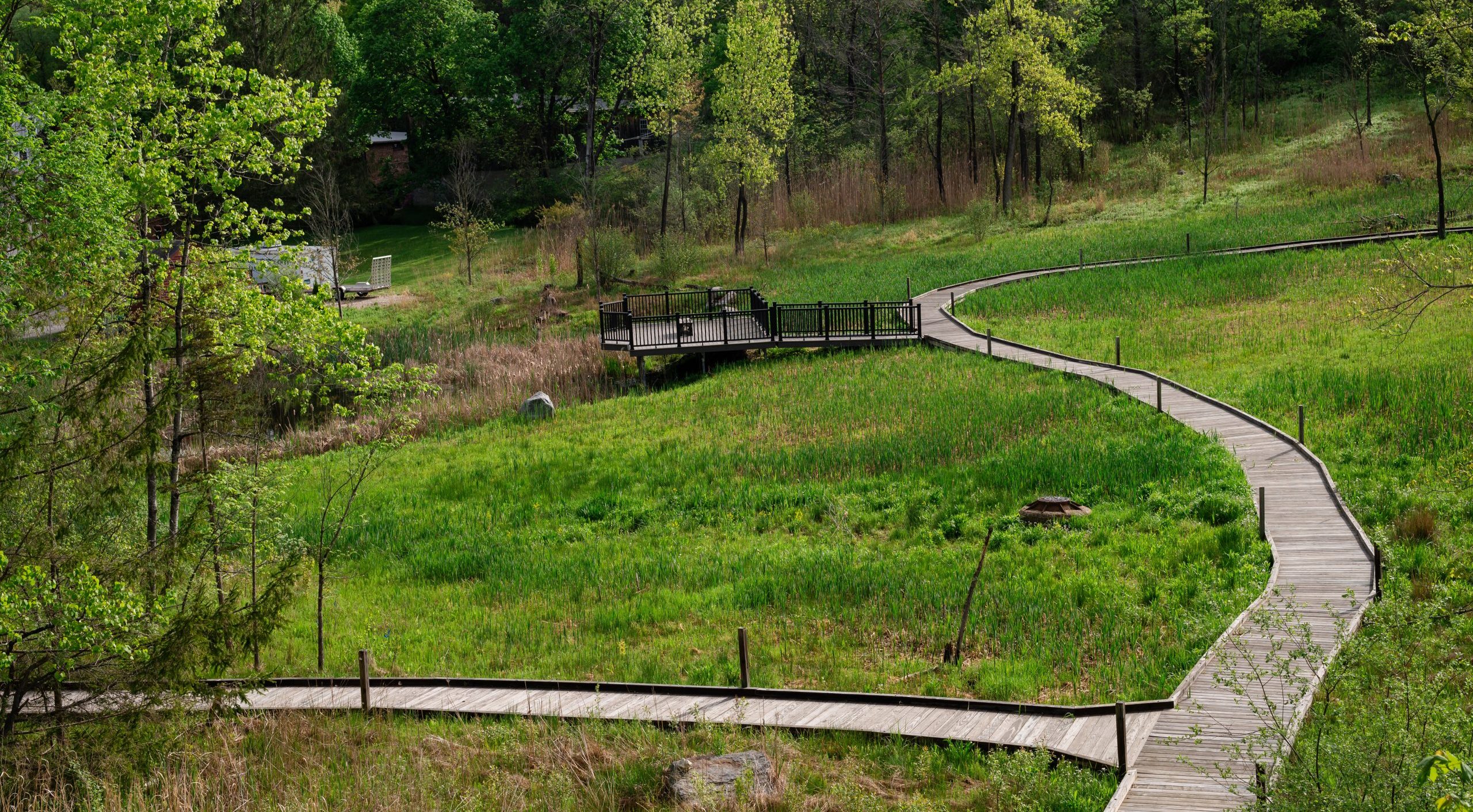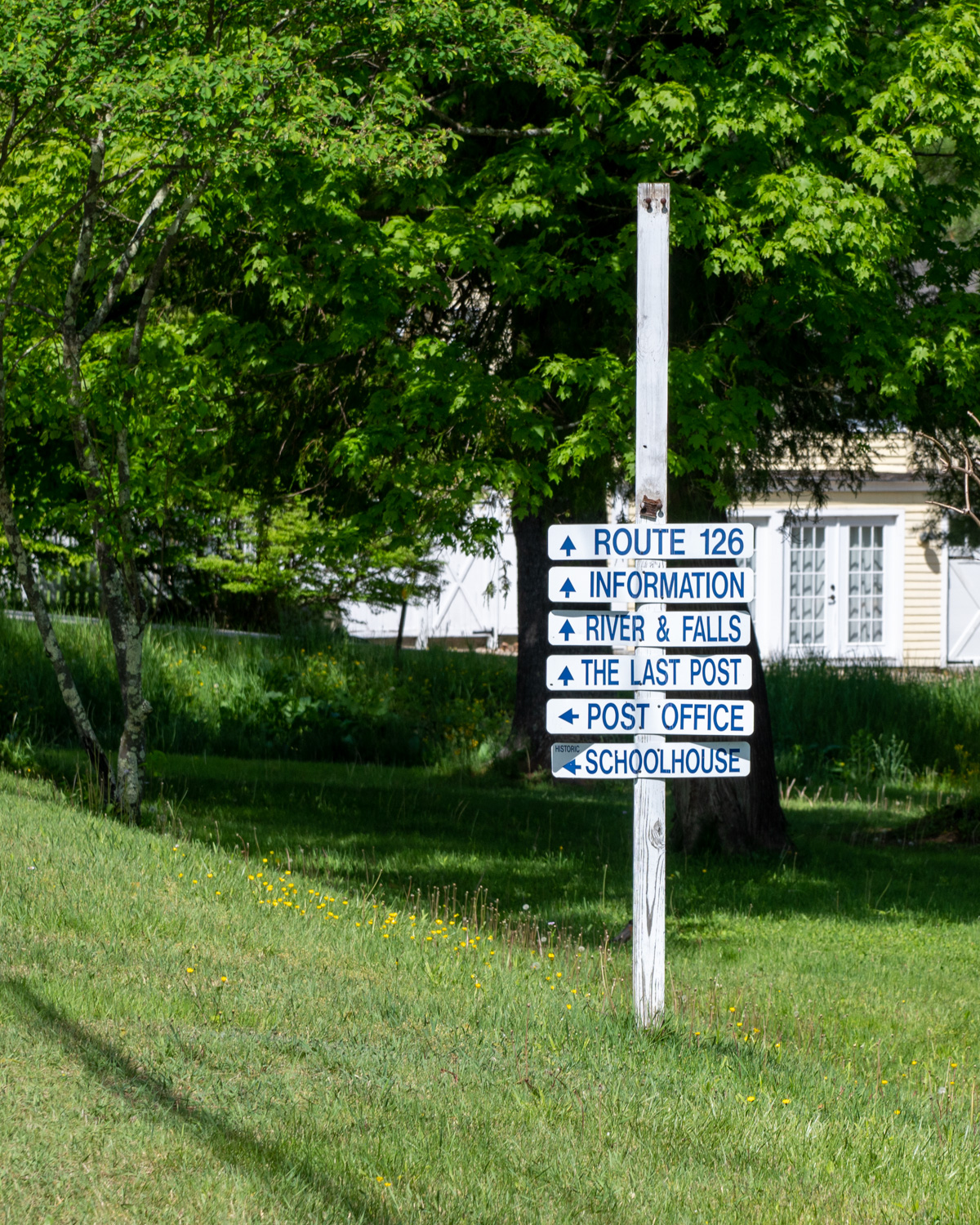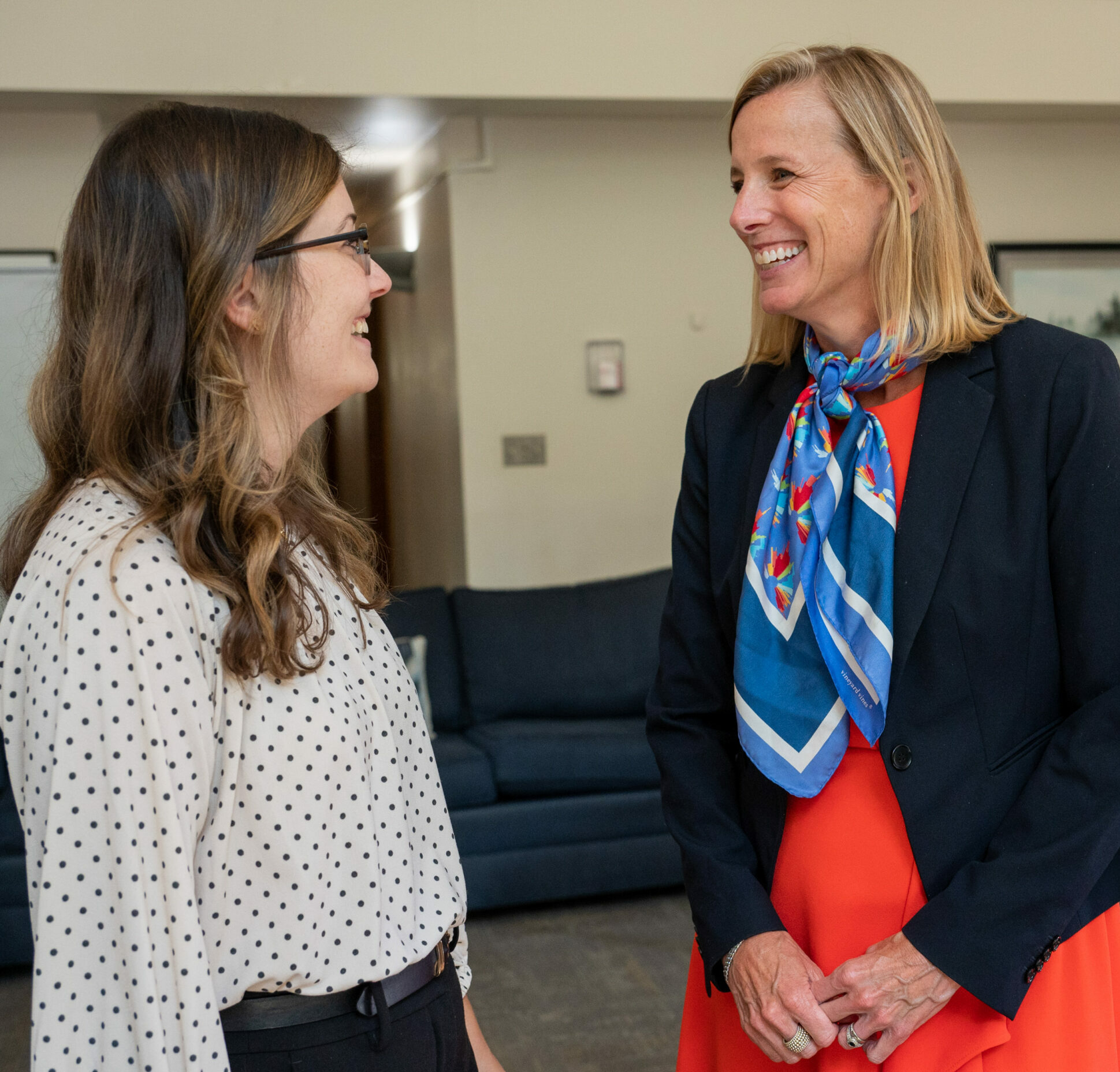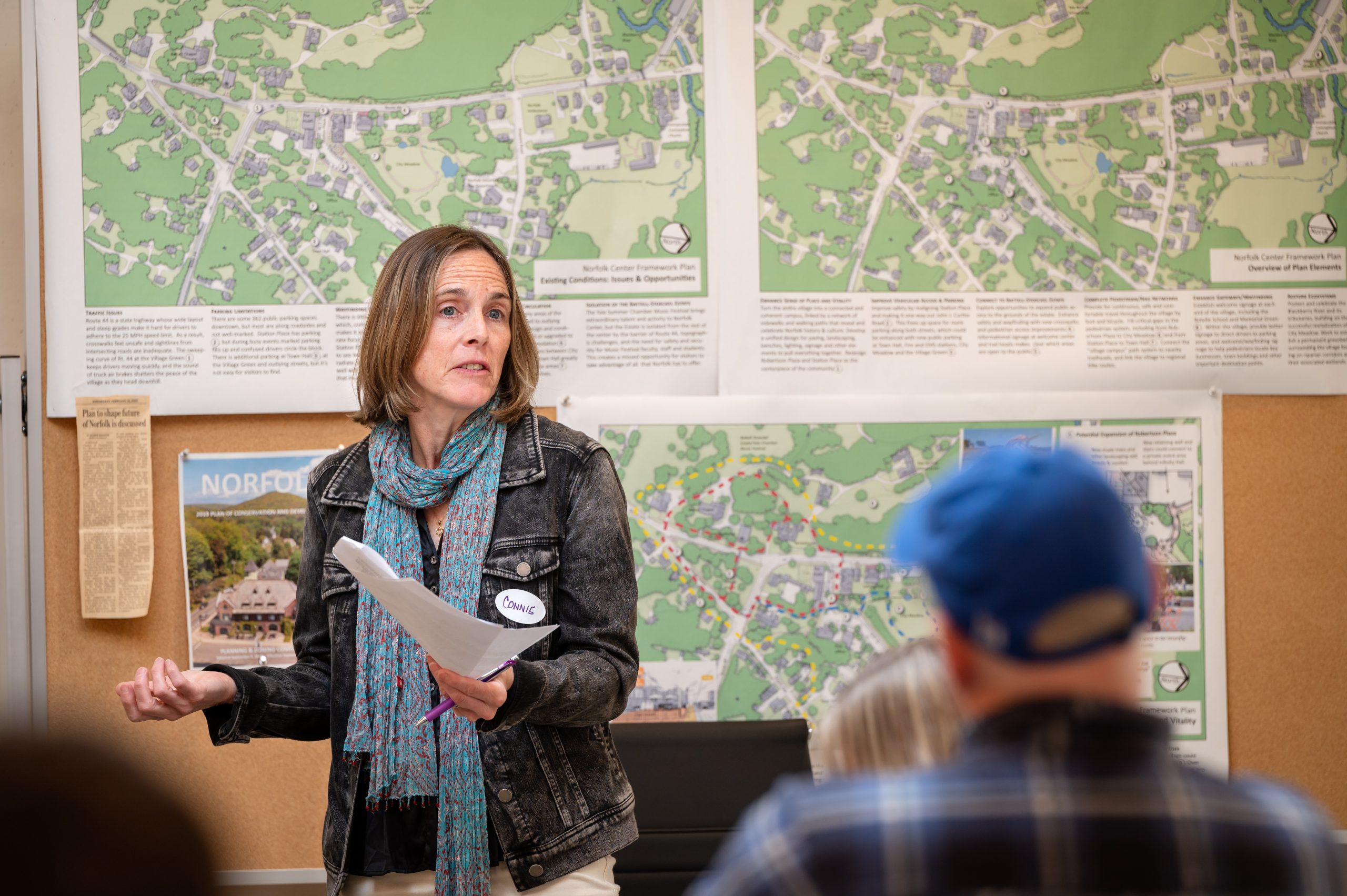Message from Our President and CEO
As I celebrated my 20th year with the Foundation last year, I reflected on the leap of faith I took two decades ago to change careers and apply for this very job. From day one, the FCH Board and I shared a vision for a place-based philanthropy built on strong values: meaningful relationships, support beyond funding (we called it “human grants”), innovation, collaboration, and strategic intention. Our program priorities have changed over time and our practices have evolved as we experimented and learned what worked and what didn’t, however, these core principles continue to guide and deepen our work.
This report on the past year exemplifies our commitment to these values and how far we’ve evolved.
In our adoption of Trust-Based Philanthropy, we’ve gone beyond reducing administrative burdens for grantees to offering more support beyond the grant.
In recognition that the health and well-being of our region is influenced by the larger systems and policies that impact daily lives, FCH engaged expert advocacy consultants to identify policy issues affecting local non-profits, which will allow us to better advocate for meaningful change on their behalf.
While encouraging networking among our grantees, we’ve also modeled collaboration by partnering with peers to address affordable housing statewide. We also seek to engage our peers in building a local philanthropic community rooted in trust-based practices.
One of the most exciting events of this year was the FCH Board’s approval of a place-based investment strategy, allocating 17% of our assets to local initiatives and impact rather than traditional financial markets. This decision has already yielded our first local investment program—the Revolving Loan Program for Affordable Housing.
As we move forward, we remain committed to our founding principles while valuing how these have evolved to remain relevant and responsive to those we serve. I’m proud of what we’ve achieved together and excited about the opportunities ahead as we continue serving our community with purpose and passion.

Advocating for Our Rural Region
The health and well-being of our communities depend not just on programs and services, but on systems and policies that shape everyday life. This reality, as well as feedback from our nonprofit partners, led us to develop an advocacy roadmap that will guide our expanded efforts in the coming years.
Working with advocacy consultants in 2024, we conducted focus groups with 21 community leaders, interviews with members of our board, and surveyed 20 local organizations to develop specific advocacy strategies.
We landed on three key approaches:
- Showcase Our Region: Through special events and convenings, we’ll connect decision-makers directly with local organizations and residents, helping them understand both our challenges and solutions.
- Develop Local Housing Leadership: Housing affordability directly impacts health outcomes and the fabric of our community. Through new and existing partnerships, we’ll seek to amplify current efforts to build capacity among community stakeholders to advocate for housing policies that serve our region’s needs.
- Provide Region-Specific Health Information to Policymakers: Our communities have valuable insights that often don’t make it to policy tables. We’ll gather both data and stories that highlight our unique health landscape, creating accessible, compelling resources for decision-makers. These evidence-based materials will help ensure that rural health realities are considered when policies are shaped.
While our grantmaking has created meaningful impact, we recognize that our rural communities have valuable expertise that needs to be heard at policy tables. By combining our grantmaking with strategic advocacy, we can create more sustainable pathways for health equity and strengthen the resilience that already exists throughout our region.
Evolving Our Approach
From Philosophy to practice
Since officially adopting trust-based philanthropy principles in 2021, we’ve fundamentally transformed how we engage with organizations serving our rural region. What began as a philosophical shift has evolved into concrete practices that have deepened our impact and strengthened our community relationships. Three years into this work, we thought it was due time to give an update on the changes we’ve made and where we see our commitment to trust-based practices taking us:
Our journey started with practical improvements: streamlining grant processes, transitioning from written reports to grant check-ins, and accepting reports or applications originally created for other funders. Overall, these initial steps reduced administrative burden for our partners while providing us with more meaningful insights into their work.
We’ve long recognized that our ability to serve our community extends far beyond funding. Today, we’re evolving from responsive to proactive, support beyond the grant. Over the past three years, this strategic shift has resulted in substantial benefits: for instance, nearly $2M in leveraged funding for our community in 2023 and new partnerships for our nonprofit partners. But meaningful impact also happens through smaller, targeted actions: conducting desk research, generating reports for other funders, providing testimony, and sharing communications resources—all valuable contributions that strengthen our partners’ capacity and reach.
impact of our trust-based approach
Our grantee surveys confirm these changes are making a meaningful difference. Partners consistently rate FCH staff highly on trust (87%), respect (87%), and responsiveness (84%).
As one grantee noted, our relationship “…feels more like a problem-solving, proactive partnership than a performative imbalance of power.” Another emphasized that “Communication with FCH around questions regarding grant applications and reports is quick, easy, and kind. It is clear that there are humans on the other side of the grant platform.”
Looking forward: deepening trust-based practice
As we continue this journey, we’re committed to further embedding trust-based principles throughout our work. We’re exploring new ways to share decision-making power, amplify community voices in our advocacy efforts, and strengthen the ecosystem of organizations serving our region.
Yet we recognize there are limits to what any single foundation can achieve. Building a truly resilient and robust social sector will require collective action. We invite community members and fellow funders to join us in adopting trust-based approaches that center community wisdom and reduce barriers to impact. By working in concert—sharing resources, aligning efforts, and trusting the expertise of those closest to the issues—we can collectively create more equitable, effective, and sustainable approaches to improving the health and well-being of our region.
Grantee Partner Highlights
26 Nonprofit Partners
17 serve Connecticut residents
6 serve New York residents
3 serve Connecticut and New York residents
Average grant made in 2024 was $31,455
64% of all grants made in 2024 were either Unrestricted or Program Unrestricted.
GRANTS
FCH made $1,041,162 in grants in 2024.
Please note that our Report to the Community is based on unaudited financial information. Grants include those made from Donor Advised Funds held by Northwest Connecticut Community Foundation and the Community Foundations of the Hudson Valley.
Committing 17% to Place-Based Investments
Early in 2024 FCH’s Board of Directors adopted a Place-based Investment Policy. This policy enables FCH to invest up to 17% of its invested funds in local opportunities with potential social impact. Sometimes referred to impact investing or program-related investments, our Place-based Investment Policy seeks to improve community-level infrastructure, including affordable housing, broadband, and food distribution, in the 17-town region FCH serves. This move aligns with our strategic framework and vision that all aspects of our community contribute to health and well-being.
Stories from Our Region
Strengthening Local Journalism to Support Informed Decision-making
In rural communities like those in FCH’s service area, access to reliable local news is essential for civic engagement and informed decision-making. Yet across the country, economic challenges have created “news deserts” where local journalism struggles to survive. The Lakeville Journal and The Millerton News—independent community newspapers serving our region for 127 and 93 years, respectively—have faced these same headwinds.
When LJMN Media converted to a nonprofit in 2021 during the pandemic, it marked a pivotal moment in preserving this vital information source. In 2024, FCH committed $208,000 in multi-year support to strengthen LJMN’s reporting capacity, with a particular focus on bolstering their Millerton news desk. This investment directly supports FCH’s strategic focus on enhancing local decision-making by ensuring community members and leaders have access to accurate, actionable information.
Two years of grant funding will enable LJMN to add a new editor position focused on digital dissemination and expand coverage of local government, health issues, and community initiatives. By investing in robust local journalism, FCH aims to strengthen the civic fabric that supports healthy communities. When residents have reliable, complete, information about local issues—from housing and healthcare to food access—they can more effectively participate in decisions that shape community health outcomes.
Creating a Collective Vision for Housing and Conservation
Creating healthy, thriving communities requires both affordable housing and protected natural lands—needs that are often viewed as competing priorities. In 2024, FCH’s continued support of the Litchfield County Center for Housing Opportunity (LCCHO) yielded an innovative collaboration that brought together these crucial interests.
In 2024, LCCHO partnered with the Housatonic Valley Association’s Litchfield Hills Greenprint Collaborative to launch the Northwest Connecticut Affordable Housing and Conservation Collaboration. This groundbreaking effort brought together town officials, planning commissions, housing organizations, and conservation groups from eight rural towns to develop shared strategies that advance both affordable housing and land conservation.
Participating communities adopted the powerful statement that “healthy communities need both affordable housing and conserved land,” recognizing that sustainable growth requires thoughtful planning that addresses both needs. As detailed in their September 2024 report, the collaboration developed shared mapping tools, strategic frameworks, and concrete recommendations for how these historically siloed groups could work together toward common goals.
A key aspect of this initiative was its community-driven approach to decision-making. The collaboration was funded through grant funds pooled by FCH and Berkshire Taconic Community Foundation, for a mini-grant program administered by LCCHO.
The short video below captures how both groups found common ground and developed practical strategies to meet both housing and conservation aims in northwest Connecticut:
First Loan from FCH’s Revolving Loan Program
In 2024, Cornwall Housing Corporation (CHC) received the inaugural loan from FCH’s Revolving Loan Program for Affordable Housing. The $183,130 loan at a 3% interest rate provided affordable financing for CHC to purchase a home in West Cornwall, originally built through their Affordable Home Ownership Program, the purchase enabled CHC to renovate before selling to an income-eligible buyer.
The program was launched in May 2024 to address a key challenge for housing nonprofits: accessing timely and affordable financing. While state and federal funding is available for acquisitions, approval can take months, and be expensive to obtain, creating barriers for the small volunteer-led affordable housing nonprofits that serve northwest Connecticut.
FCH has committed up to $2 million to support housing nonprofits in northwest Connecticut through this program. Unlike grants, these loans remain assets on FCH’s balance sheet, with repayments becoming available for new housing projects. This approach creates a sustainable investment cycle while helping housing organizations maintain and expand affordable housing in our communities.
Inside FCH
Financials
*FCH receives an annual distribution from two externally held trusts.
**FCH has two donor advised funds held by the Community Foundations of the Hudson Valley and Northwest Connecticut Community Foundation.
***Grants awaded include $181,000 (2024) and $811,000 (2023) in grants made from the aformentioned Donor Advised Funds, remaining grants were made from FCH Owned Assets.
Making Extraordinary Grants
Honoring donor intent, FCH proudly transferred the Peter H. Smith Fund ($108,793) to Nuvance Health’s Sharon Hospital, ensuring these restricted funds directly support their intended purpose: the continued education and development of Sharon Hospital’s dedicated medical staff. This decision put us above our annual grant budget for the year – making the transfer an ‘extraordinary’ grant. This flexibility is intentional – FCH’s policies enable the foundation to approve grants outside of our annual spending plan when opportunities arise. Over our 21-year history, we’ve awarded over $7M in extraordinary grants.
Board and Staff
Our small and nimble team cares deeply about our region and endeavors to be adaptive to its needs. Our board members live and/or work in the rural 17-town region FCH serves.
Board of Directors
Thomas Quinn, Chair & Treasurer
Karren Garrity, Vice-Chair
Rev. AJ Stack, Vice-Chair
Edith Greenwood, Second Vice-Chair
Ceely Ackerman, Secretary
John Charde, Ex-Officio
Christian Allyn
Katty Brennan
Jill Feldstein
Peter Halle
Dr. Zach McClain
Hila Richardson
Dr. Caroline Salas-Humara
Staff
Sarah Allyn, Program Lead
Cathy Glasner, Operations Lead
Nancy Heaton, President & Chief Executive Officer
Natashea Winters, Director of Programs & Learning
About this Report
At FCH, we uphold transparency and accountability by publishing our Report to the Community to share our activities, financial performance, and stories from our region. By providing detailed insights into our work and impact, we aim to foster trust, invite feedback, and demonstrate our commitment to our mission. We encourage you to explore this report and our previous annual reports to understand our work, progress, and how we allocate resources for positive change.




